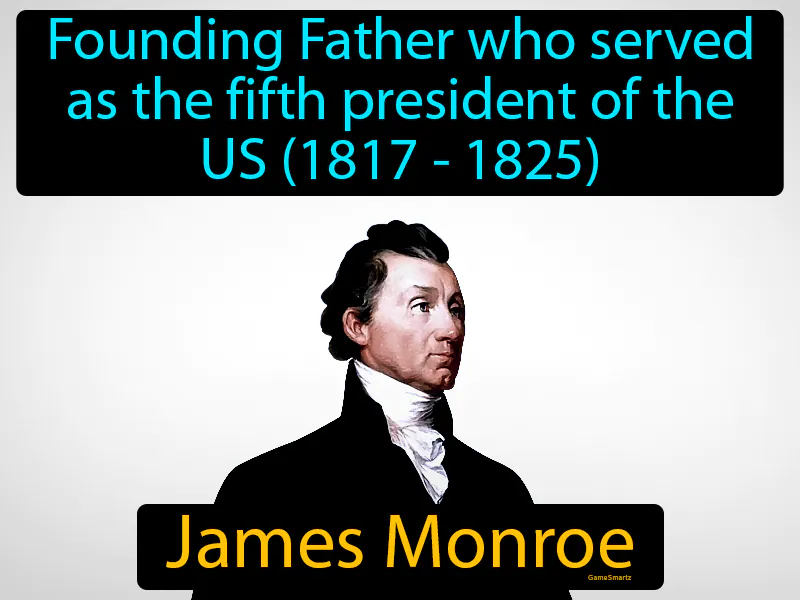James Monroe
James Monroe: Easy to understand
James Monroe was the fifth president of the United States and a Founding Father who served from 1817 to 1825. He is best known for the Monroe Doctrine, a policy that warned European nations against colonizing or interfering in the Americas, asserting that the Western Hemisphere was under the U.S.'s sphere of influence. This doctrine was important because it helped establish the United States as a strong and independent nation, influencing foreign policy for years. Today, Monroe's legacy of promoting national sovereignty inspires people to value independence and protect their own communities from external pressures. For example, students learning about civic responsibility might draw inspiration from Monroe's leadership to stand up for their rights or participate in local government.

Practice Version

James Monroe: Founding Father who served as the fifth president of the US 1817 - 1825. James Monroe. He is known for the Monroe Doctrine, which warned European countries against interfering in the Americas.